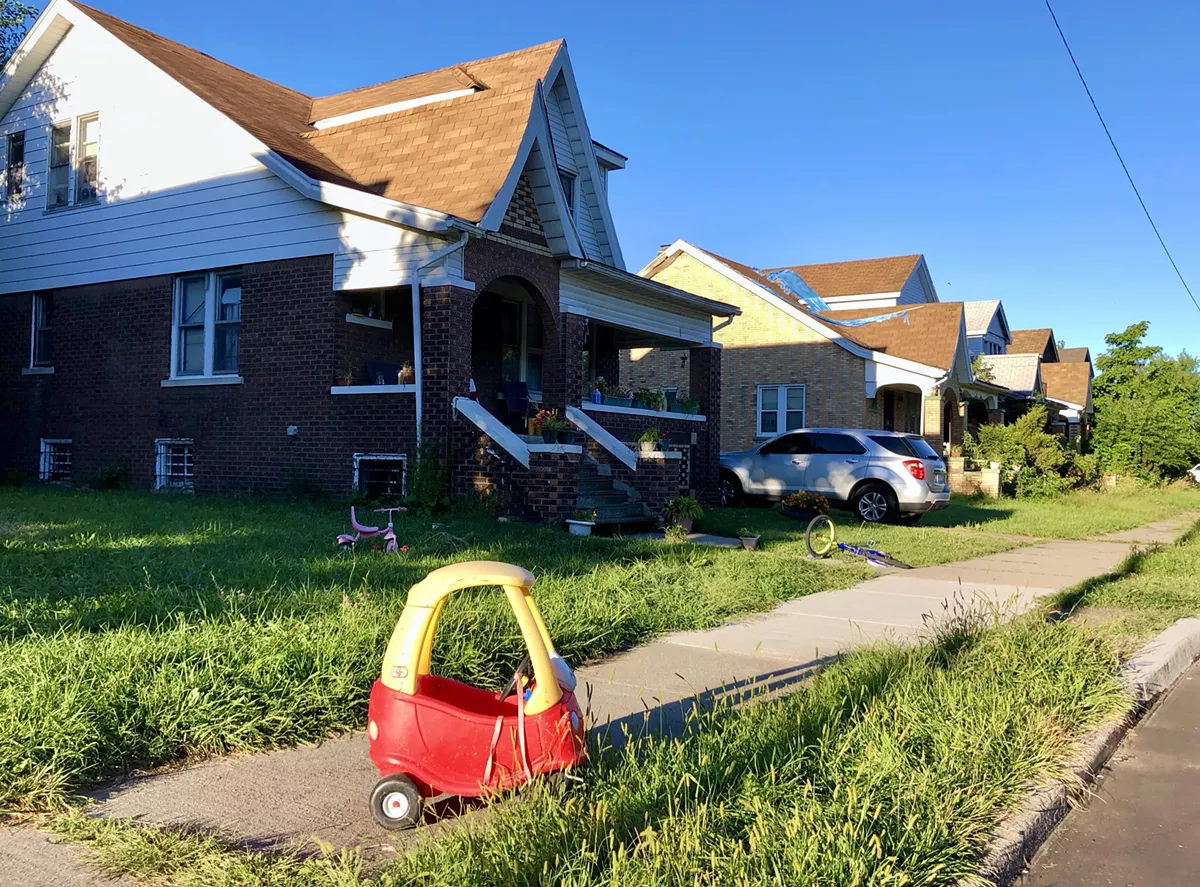Is Detroit still cheating homeowners on taxes? New audit to find out.
A recent study suggested the city's lower-income residents are being disproportionately gouged


Audio By Carbonatix
[
{
"name": "GPT - Leaderboard - Inline - Content",
"component": "35519556",
"insertPoint": "5th",
"startingPoint": "3",
"requiredCountToDisplay": "3",
"maxInsertions": 100,
"adList": [
{
"adPreset": "LeaderboardInline"
}
]
}
]
Detroit homeowners are nearing the truth about whether their houses are still being overtaxed after the city council on Tuesday approved hiring an independent auditor to review property value assessments.
The council unanimously approved a $230,000 contract with the International Association of Assessing Officers (IAAC), a Kansas City-based nonprofit research group that focuses on property taxes.
The contract, which was supposed to be passed five months ago, is required under an ordinance passed by the council in November 2023. The property tax ordinance is aimed at determining whether homeowners are being overtaxed.
Between 2010 and 2016, the city of Detroit overtaxed homeowners by at least $600 million. The Michigan Constitution prohibits property from being assessed at more than 50% of its market value. Between 2010 and 2016, the city assessed properties at as much as 85% of their market value.
While Mayor Mike Duggan’s administration says the property assessments have been fixed and are now fair, a recent study suggests the city is cheating lower-income residents by illegally and disproportionately overtaxing homes worth less than $35,000. The study, released in March by the University of Chicago’s Harris School of Public Policy, claimed the city overassessed the value of 72% of the homes worth less than $34,700. By contrast, a vast majority of the homes worth more than $35,000 were not overassed, according to the study.
Duggan’s administration vehemently rejected the study’s findings, saying the city’s assessments are accurate. In a statement to Metro Times in March, Detroit Assessor Alvin Horhn dismissed the claims in the study as “utter nonsense” and “politically driven,” saying that “any claim that homes today are systematically overassessed is just false.”
Bernadette Atuahene, a property law scholar who has studied Detroit’s property tax foreclosure crisis, says she and other activists with the Coalition for Property Tax Justice, are “overjoyed” by the council’s action Tuesday. She contends the independent analysis will substantiate the University of Chicago’s study and force the city to reform assessments.
“The key is that you cannot fix a problem until you admit you have one,” Atuahene tells Metro Times. “I hope with the independent evaluator, we all agree on what has been so painfully obvious, we still have a problem, the lower valued homes and Detroit are still being assessed in violation of the Michigan Constitution.”
More than a dozen Detroiters called on the council to approve the contract with IIAC on Tuesday and admonished the Duggan administration for failing to meet the February deadline to hire an independent evaluator.
“Passing this contract is long overdue,” Michael Thomas Hart told the council. “City council should pass this, not only because it’s required by law, but also because it’s the right thing to do.”
Duggan’s administration said it would have been nearly impossible to secure the contract in just three months, explaining that the standard procurement process typically takes about six months. The administration also said the city council requested multiple changes, prompting more delays.
Only time will tell whether Detroiters are still being cheated on their taxes.
“The University of Chicago already did the study but Alvin Horne keeps saying that it’s not legitimate,” Atuahene says. “Now that the city is doing the study itself with a trusted entity, the IAAO, he can no longer say the study is illegitimate.”






